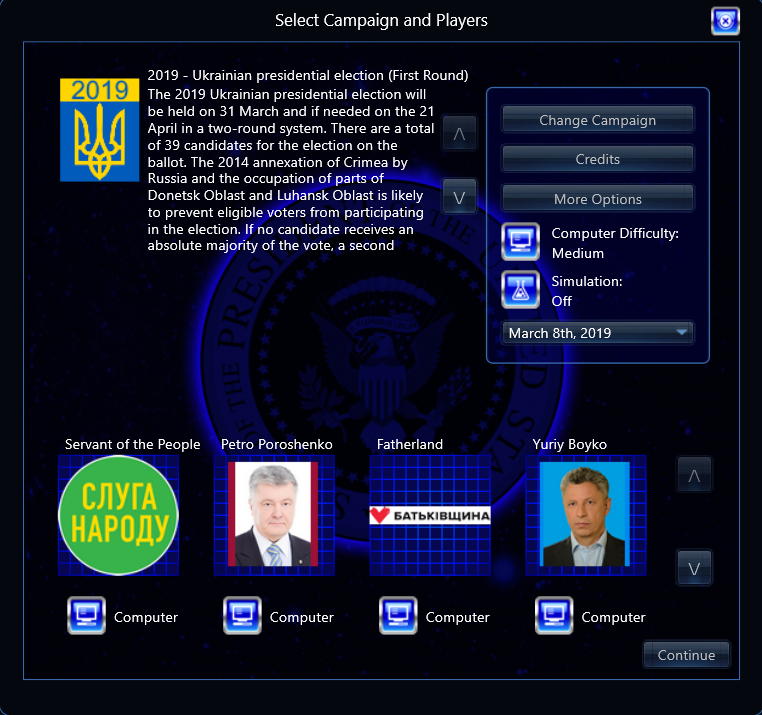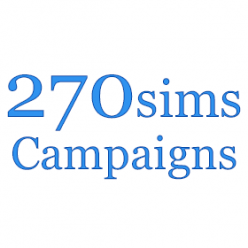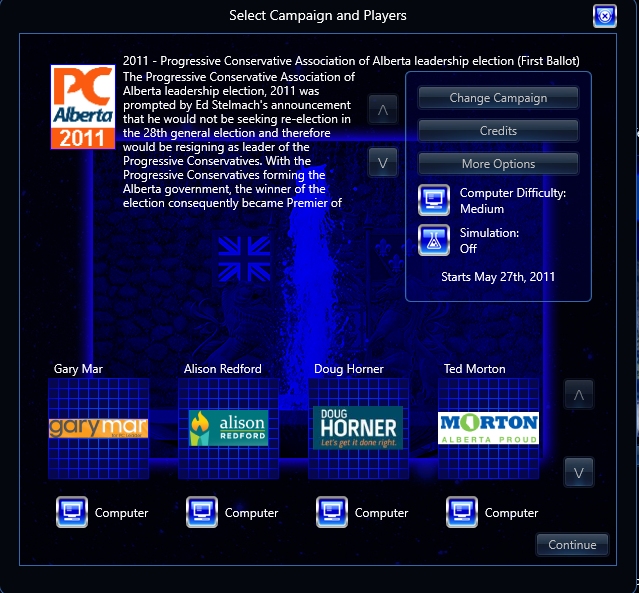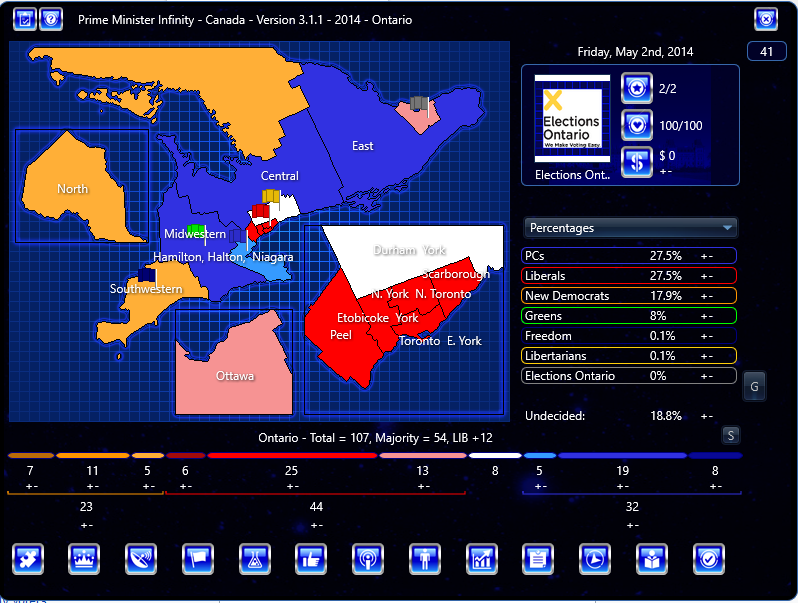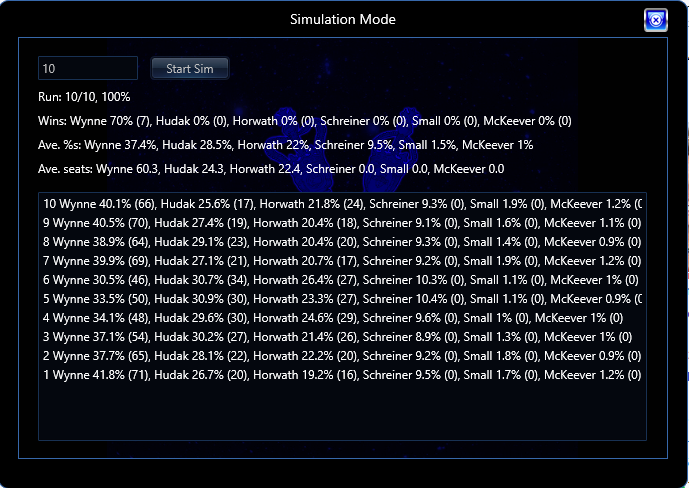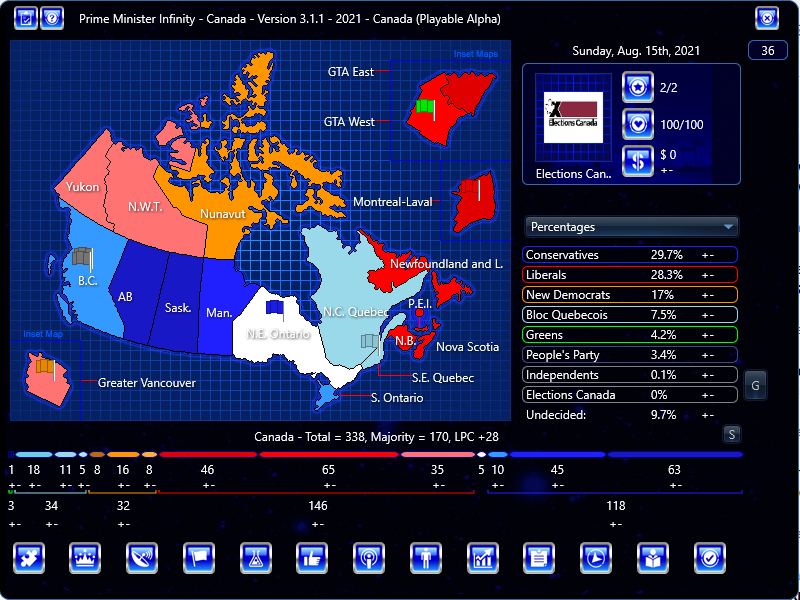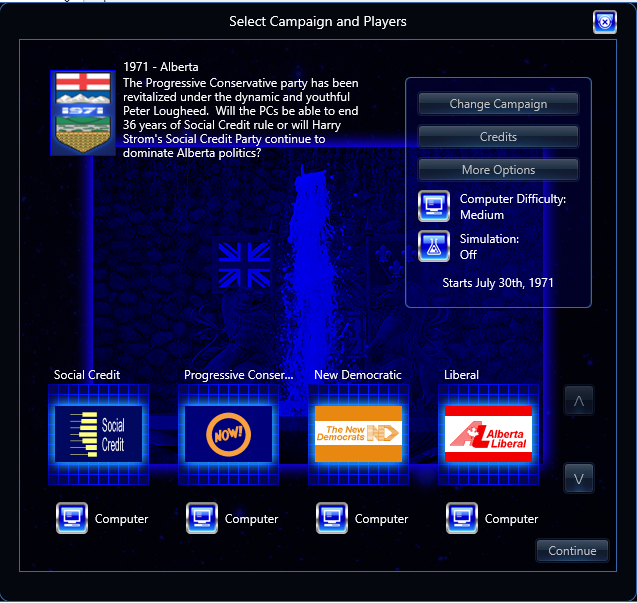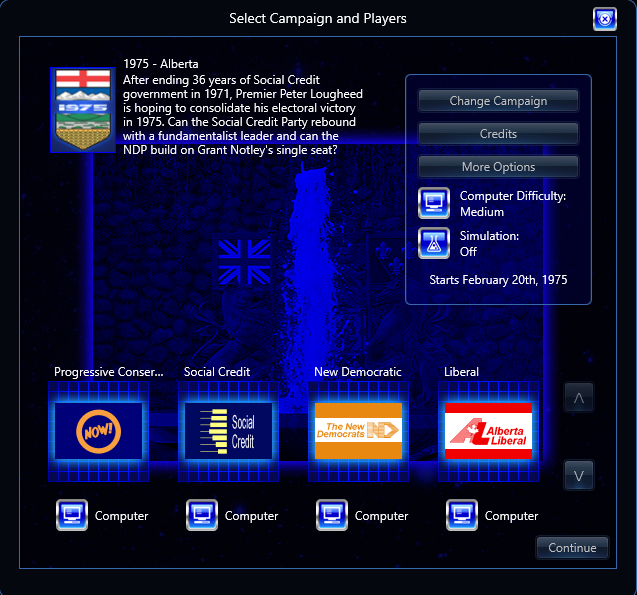The 2019 Ukrainian presidential election will be held on 31 March and if needed on the 21 April in a two-round system. There are a total of 39 candidates for the election on the ballot. The 2014 annexation of Crimea by Russia and the occupation of parts of Donetsk Oblast and Luhansk Oblast is likely to prevent eligible voters from participating in the election. If no candidate receives an absolute majority of the vote, a second round will held between the top two candidates on 21 April 2019. It is expected to be between Volodymyr Zelensky, who played the role of Ukraine’s president in a popular television comedy and the incumbent president, Petro Poroshenko.
This scenario has been built in President Infinity Classic as the editor is still under development in PI2020. It will most likely work in PI2020 but I may need to patch it if it doesn’t.
